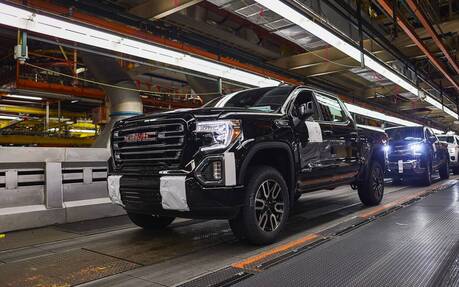Chip Shortage Improving, But Now There’s a Rail Car Shortage
We don’t write about it very much because, well, we hate to bring you down, but supply chain disruptions continue to affect car production and deliveries globally. Chief among them is still the ongoing chip shortage. You know, these precious electronic components that run a myriad of systems in modern vehicles.
What’s the situation right now? According to AutoForecast Solutions, a market analysis firm that has kept count of lost vehicle production since the chip shortage started in 2020, things are improving but we wouldn’t celebrate just yet.
- Also: 2023 Honda CR-V Loses Safety Features Due to Chip Shortage
- Also: Volvo EX90, Polestar 3 Production Delayed by Software Issues
It now estimates that 2.6 million vehicles globally won’t get built this year due to the chip shortage, a slightly lower figure than its earlier forecast of 2.8 million vehicles.
In North America, AutoForecast Solutions calculates that 614,938 vehicles have been lost so far in 2023 and there could be just over one million by year’s end—significantly more than in Europe (about 700,000), China (360,000) and the rest of Asia (435,000).
General Motors’ 11 vehicle plants across the continent have been hit the hardest, especially the one in Fort Wayne, Indiana that makes Chevrolet Silverado and GMC Sierra pickups. Still, CFO Paul Jacobson last week called GM’s first-half performance “fantastic” and felt very optimistic about the next six months.
Rail Car Shortage
The bad news—because there’s always some—come from another shortage. Just a couple of days ago, Detroit Free Press reported that automakers have approximately 70,000 brand-new cars finished and ready to ship to dealers, but stranded at ports and factories due to a shortage of rail cars to carry them.
TTX, the company that administers the shared pool of autoracks (12-18 vehicles) for all automakers in the U.S., apparently has failed to properly account for the increase in vehicle production brought on by the end of the COVID-19 pandemic. And as you can imagine, using more car carriers (semi trucks pulling racks of new cars) won’t suffice.
The Alliance for Automotive Innovation, the largest trade group representing the auto industry south of the border, is pressing the U.S. government to intervene and “make sure the country has a fully functioning freight rail system.”
